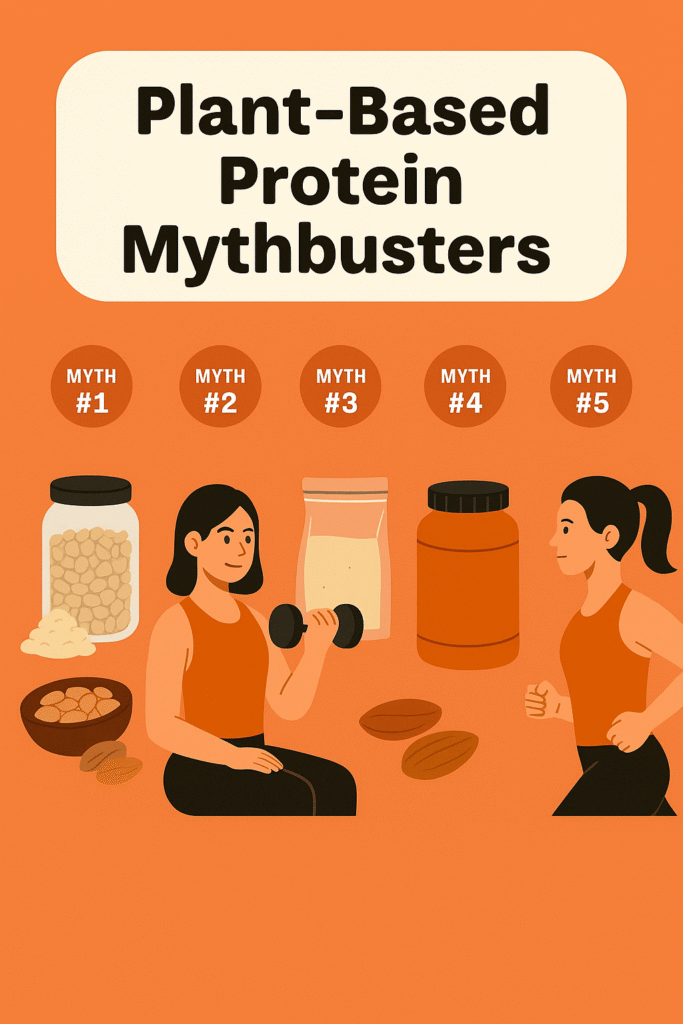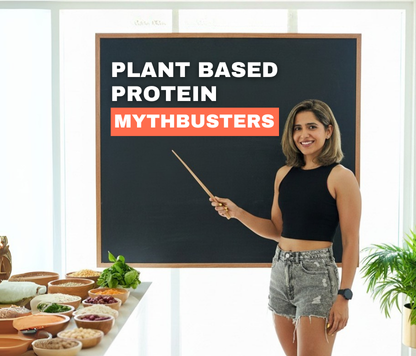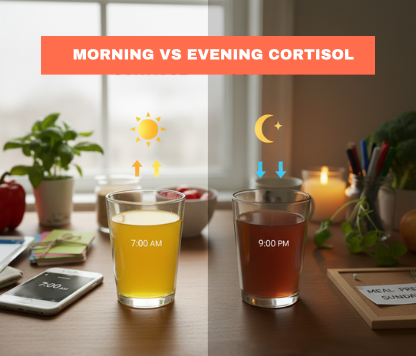Introduction: Clearing The Air On Plant Proteins
Plant-based protein is often misunderstood, tangled in myths that stop many from embracing its full benefits. As a fitness dietitian with 10+ years of experience, I’ve seen firsthand how powerful and transformative plant-based eating can be—even for athletes, busy professionals, and beginners.
In this guide, “Plant Based Protein Mythbusters,” we’ll bust the biggest misconceptions around plant proteins and show you how to unlock strength, energy, and wellness through smarter choices. Whether you’re swapping meat for ethical reasons or just curious, this blog will give you science, clarity, and confidence.
Why People Doubt Plant-Based Protein
Many people worry: “Will I get enough protein? Can I build muscle without meat or whey?” These doubts usually stem from outdated nutrition beliefs, heavy meat-centric marketing, or a lack of education.
Globally, protein has long been associated with meat—and that cultural programming sticks. Many fitness beginners or time-strapped professionals hesitate to try plant-based diets because they fear losing strength, energy, or progress. But with better awareness, it’s easier than ever to see plant-based protein as a complete and effective fuel source.
Top 5 Myths About Plant-Based Protein

Plant Proteins Are Incomplete
It’s true that most single plant proteins don’t contain all nine essential amino acids in large amounts. But that doesn’t mean you’re missing out.
Eating a variety—like lentils with rice, or peanut butter on whole-grain bread—easily completes the amino acid profile. Your body stores and assembles amino acids over time. You don’t need to “combine” them perfectly in one meal. Balanced variety across your day does the job.
You Can’t Build Muscle with Plant Proteins
Muscle building is about total protein intake, not just the source. Research supports that with the right amount and diversity of plant proteins, plus resistance training, you can build lean muscle just like on an omnivorous diet.
Fitness legends like Nimai Delgado, a lifelong vegetarian bodybuilder, are proof that plant protein works.
Power combos like tofu, tempeh, edamame, and legumes provide both protein and nutrients that support muscle recovery and endurance.
Plant Proteins Are Too High In Carbs
Yes, some plant proteins (like lentils and beans) come with natural carbohydrates—but that’s not a bad thing. These carbs often include gut-loving fiber and slow-digesting starches that stabilize energy.
There are also plenty of low-carb plant protein sources like tofu, tempeh, hemp seeds, and pea protein isolate—perfect for low-carb or keto-style eating.
Plant Protein Powders Are Unsafe For Daily Use
High-quality plant protein powders made from pea, rice, soy, or hemp are absolutely safe for daily use—just like whey. Many are hypoallergenic, free from artificial additives, and easier on the gut for lactose-intolerant individuals.
They’re especially useful for busy professionals who need a fast breakfast or post-workout recovery without fuss.
Plant Proteins Don’t Deliver Fast Results
Results don’t depend solely on protein type but on your total intake, training, sleep, and recovery. With proper portions and planning, you’ll see just as much progress using plant-based sources.
In fact, many people report feeling lighter, more energized, and less inflamed when they switch from heavy meat to cleaner plant fuel.
Why Your Body Needs Plant-Based Protein
Plant proteins offer more than muscle-building. They’re loaded with phytonutrients, antioxidants, and fiber—all of which help fight inflammation, support gut health, balance hormones, and protect the heart.
They also tend to be lower in saturated fat, reducing your risk of chronic illnesses. For busy professionals or those new to fitness, plant-based meals can improve digestion, energy levels, and even mood.
Best Sources of Plant-Based Protein
Here’s a look at excellent sources you can rotate in your week:
- Tofu & Tempeh – Complete proteins, great for stir-fries or curries
- Lentils & Chickpeas – High in fiber, iron, and versatile
- Quinoa – Grain-like seed with complete amino acids
- Soy Milk & Edamame – Great dairy-free protein options
- Peanuts, Almonds, Chia, and Hemp Seeds – Good fats + protein
- Spirulina – A superfood packed with complete protein and micronutrients
Tip: Combine grains + legumes in your meals to optimize absorption and balance.
India’s Best Veg Protein Diet Plan
If you’re confused about how to build a solid, everyday high-protein vegetarian routine—you’re not alone. That’s why we created The Veg Protein Fix at FitChef by Shitija.
It’s not just another diet. It’s a structured plan built with:
- High-protein meals using lentils, tofu, nuts, dairy, and legumes
- Balanced macronutrient portions tailored for busy lives
- Recipes that are time-saving, delicious, and globally inspired
- Smart combinations to support your muscle recovery, weight loss, or active routine
Whether you’re in India, Dubai, London, or New York—this plan brings sustainable, whole-food protein to your lifestyle with ease.
Conclusion
It’s time to stop doubting and start thriving on plant power. The truth is clear: you can hit your goals, build muscle, and feel amazing without needing meat or whey. With the right choices, plant-based protein becomes your wellness ally—not a compromise.
Don’t let old myths dictate your health journey. Choose variety, eat intentionally, and trust that your body can thrive without compromise.
If you’re ready to simplify your nutrition and get results without overthinking, the Veg Protein Fix plan by FitChef by Shitija is your go-to—crafted by someone who walks the talk.
Frequently Asked Questions (FAQs)
1. Can I get enough protein on a vegetarian or vegan diet?
Absolutely. By eating a variety of lentils, legumes, soy, nuts, and grains, you can meet your daily protein needs—even for muscle building.
2. Are plant proteins complete?
Individually, many aren’t—but your body isn’t limited to one meal. Mixing different sources throughout the day gives you a complete amino acid profile.
3. Will I gain muscle on a plant-based protein plan?
Yes, as long as you consume enough protein and calories, paired with regular strength training, you can gain lean muscle effectively.
4. Is it safe to have plant protein powders daily?
High-quality powders made from peas, rice, or hemp are safe for regular use. Just check for clean ingredients and no added fillers.
5. Can plant proteins offer fast results like whey or meat?
Yes. When used correctly, plant proteins support performance, recovery, and long-term health—often with added digestive and anti-inflammatory benefits.





